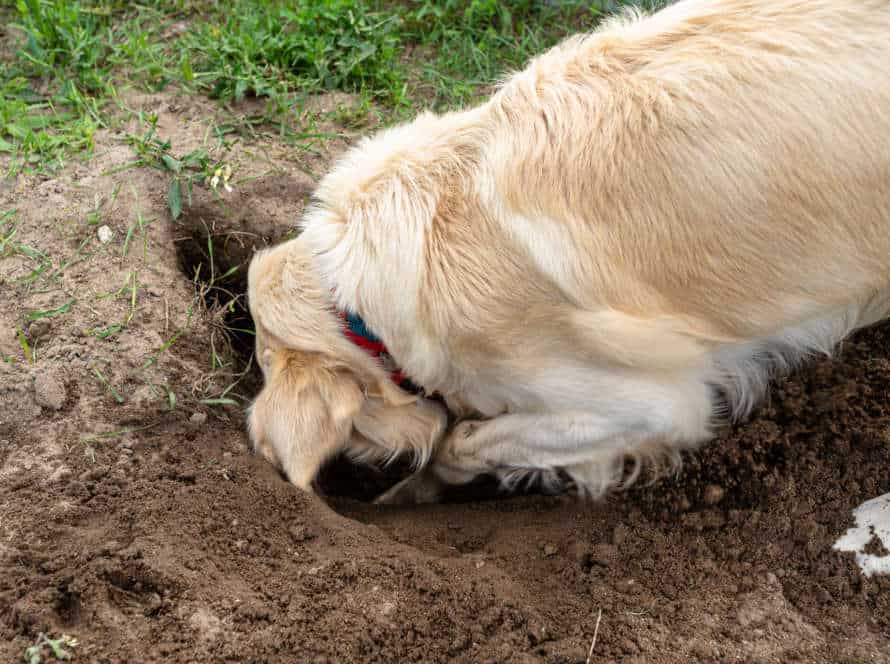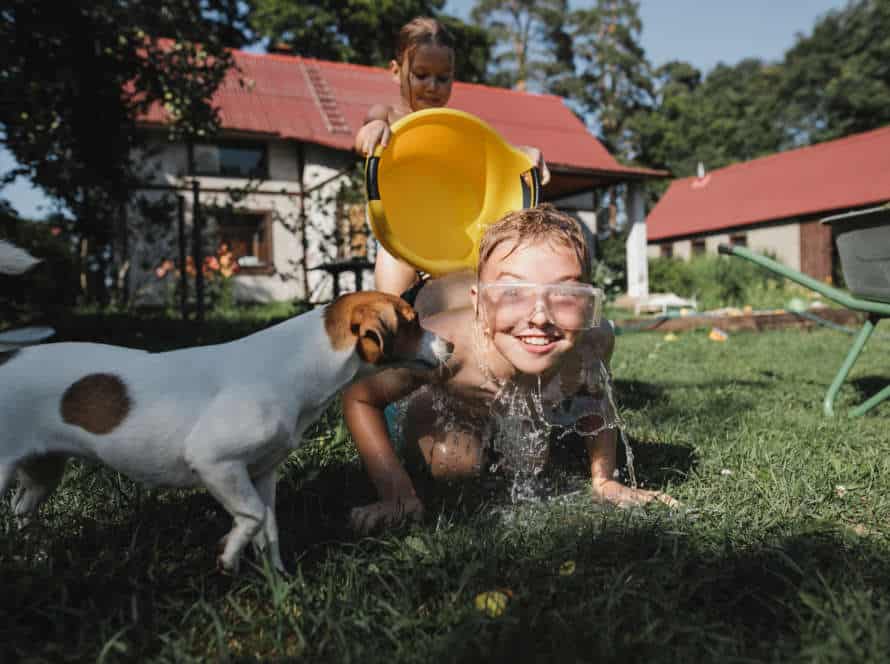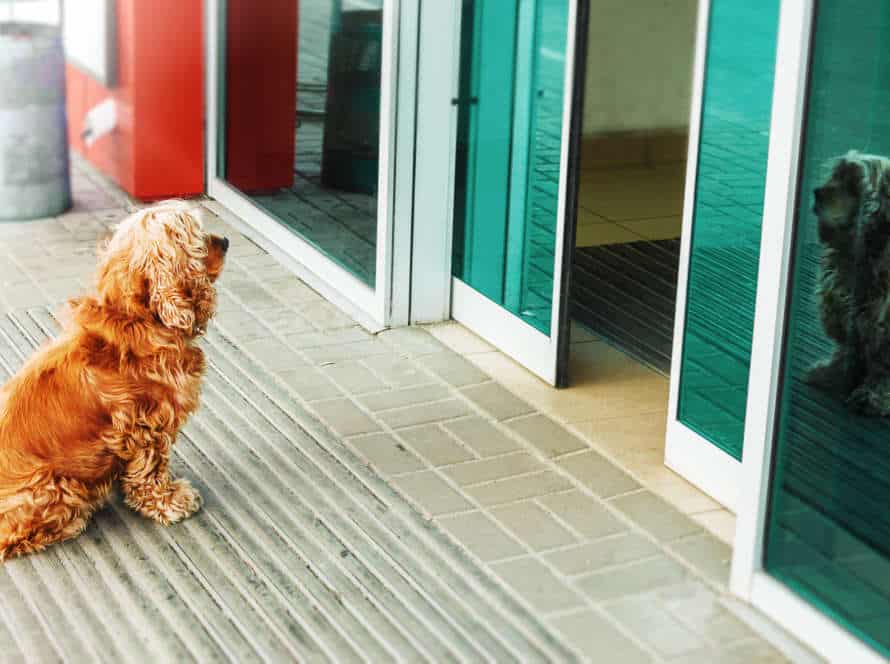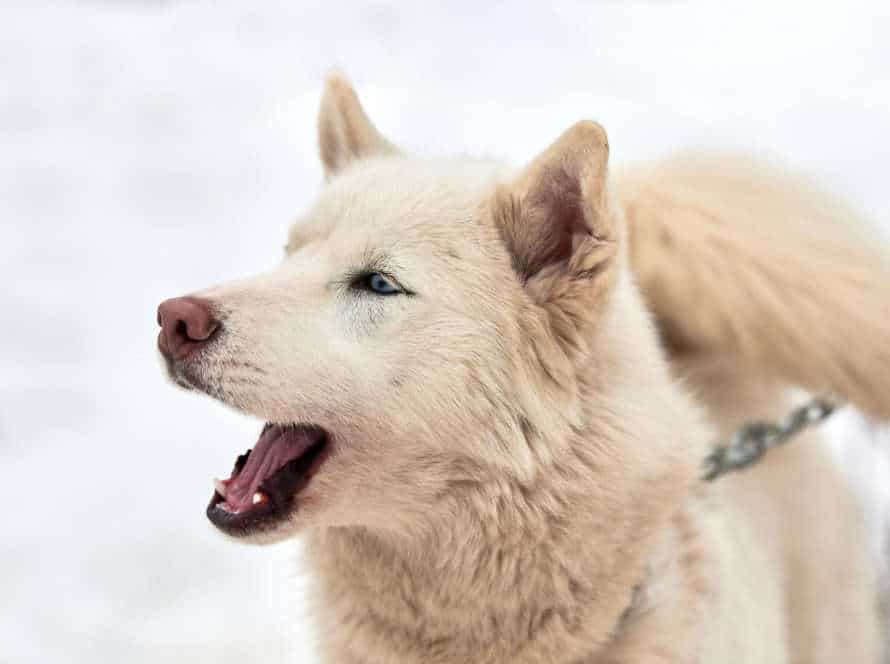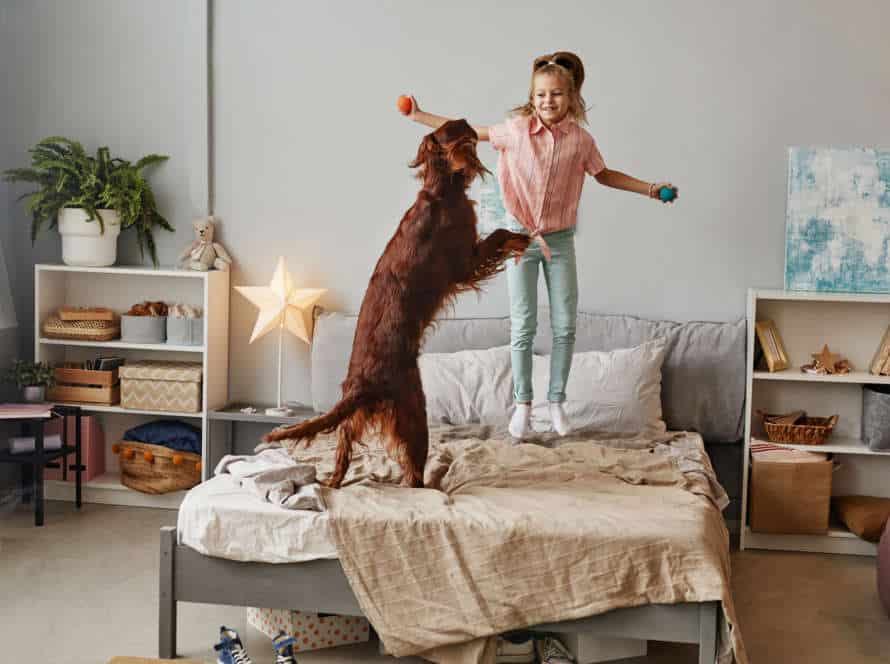Sensitivity to Noise: How to Help Your Dog Cope
Noise sensitivity is a common problem for dogs. It can make them anxious, agitated, or even scared when they hear loud noises like thunderstorms, fireworks, or music. Here’s how to help your four-legged friend cope:
- Create a calm atmosphere. During loud events, put your pup in a peaceful, secure room with soothing music, toys, and comforting scents.
- Try a thunder shirt. A properly sized thunder shirt can bring a sense of security and reduce a dog’s anxiety.
- Desensitize your pup. Slowly introduce your pup to loud noises, and reward them for it. Doing this can help them build confidence and lessen their sensitivity.
- Speak to your vet. For serious cases, your vet may suggest medications or therapy to help manage your pup’s fear.
Pro Tip: Sensitivity to noise can be very challenging for dogs. Show patience and kindness during the coping process.
Understanding Canine Noise Sensitivity
Noise sensitivity in dogs can be a real problem. Loud noises can cause serious distress for the pup. It’s important for pet owners to know what causes it and how to spot signs of distress. If owners understand canine noise sensitivity, they can better care for their pooch and help them cope.
What is noise sensitivity?
Noise sensitivity is a condition where dogs become very scared or stressed when they hear loud or sudden noises. Thunderstorms, fireworks and traffic are common triggers.
Signs of this in dogs can be trembling, drooling, panting, restlessness and trying to get away.
Here are things that can help:
- Make a safe and calm space for your dog when there is noise.
- Play white noise or calming music to block out loud sounds.
- Give your dog lots of exercise and mental activities to reduce worry.
- Ask your vet about medicines or supplements to help your dog cope.
With time, practice and the right tools, you can help your noise-sensitive dog live happily. Always talk to your vet for special advice.
How do dogs experience noise differently than humans?
Dogs hear differently than humans. They can detect sounds up to 65,000 Hz. This makes high-pitched noises troublesome for them. It amplifies sound in their middle ear and sends it directly to their inner ear. This lets them pick up on low-level sounds that humans may miss.
To help your dog cope with noise sensitivity, create a safe, quiet space for them. Use white noise machines or calming music to mask disruptive sounds.
Causes of noise sensitivity in dogs
Noise sensitivity in dogs can be caused by different things. Such as genetics, health issues, and environmental conditions.
- Genetics: Certain breeds, like German Shepherds, can have more noise sensitivity due to their genes.
- Health issues: Dogs with hearing problems may be more sensitive to noise. Older dogs might also be more sensitive due to age-related cognitive decline.
- Trauma: Dogs with bad experiences with loud noises, like fireworks or thunderstorms, can end up being noise sensitive.
- Environment: Dogs near loud noises or sudden noises, like city traffic or construction sites, could become noise sensitive too.
It is important to understand the cause of your dog’s noise sensitivity to figure out the best way to help them feel better.
Signs Your Dog May be Noise Sensitive
Pups can get noise-sensitive for many reasons–from genetics to trauma to a lack of proper socialization. Showing fear or anxiety when they hear loud or sudden noises? That could be a sign of noise sensitivity. Common signs? Trembling, panting, pacing, shaking, and hiding. But with training and support, you can help your dog cope with noise sensitivity.
Behavioral changes and signs of distress
Dogs can be sensitive to noise. To help them, be aware of any changes in their behavior.
Signs of distress include:
- excessive barking/howling
- hiding
- destructive behavior
- loss of appetite
- aggression
Investigate the cause and comfort your dog if you see these signs.
To help cope with anxiety:
- Create a safe space for your pup.
- Use music, white noise, or sprays to help them relax.
- Consult a vet about behavior modification therapy, or medication.
- Remain calm and patient. Anxiety/frustration can make their distress worse.
Physical changes in dogs with noise sensitivity
Dogs that have noise sensitivity may show a wide range of physical changes when they hear loud or sudden noises. These changes often make them anxious and scared.
Common signs of noise sensitivity in dogs are: trembling, panting, biting or licking their limbs, big pupils, ears flat against their head, tail tucked in, pacing, and being restless.
To help your pup cope with noise sensitivity, you can:
- Create a secure place for them when loud noises occur.
- Play calming music, give them exercise, and use aromatherapy.
- Use positive reinforcement to teach them loud noises mean something good.
- Get help from professionals such as behavior modification training or medication.
Noise sensitivity in dogs is serious and needs to be addressed quickly. As an owner, watch for these signs and get help if needed. Plus, be understanding and consistent with any training or therapeutic techniques.
Recognizing triggers and anticipatory anxiety
Recognize triggers and know anticipatory anxiety. These are essential to aid your dog with noise sensitivity.
Signs include trembling, panting, pacing, hiding or whining during loud or sudden noises.
Identify triggers. Fireworks, thunderstorms and loud music are common ones.
Desensitize your pet with treats and toys. This helps them relate the trigger to a positive experience.
Anticipatory anxiety is another issue. Fear before the trigger even happens. Create a calming environment to help cope.
Pro tip: Train early to avoid more extreme symptoms later.
Coping Strategies for Dogs with Noise Sensitivity
Dogs with noise sensitivity can be very stressed by loud or unfamiliar sounds. Things like a doorbell, thunder, or fireworks can be too much. There are strategies to help them. Giving them a safe place. And helping them get used to the noises. These can help your dog feel calmer and more relaxed.
Creating a safe space for your dog
Making a safe & cozy spot for your noise-sensitive pup is a must for their physical & mental health. Here are some tips to help manage your pup’s noise sensitivity:
- Give them a safe area: Set up a quiet, comfy space in the home, free from loud noises. It’ll be their safe place when they’re scared or anxious.
- Use white noise: Cut down on outside noise with white noise or calming music in the background. This will help them relax & feel secure.
- Desensitize them: Let your pup get used to noises gradually & calmly. This will help them cope in the long run.
- See a vet: If their sensitivity is bad, talk to a vet about behavior management & possible meds to help with their anxiety.
By following these tips, you can help your pup feel safer & more relaxed. Pro Tip: Be consistent & patient in your approach & give lots of positive reinforcement to encourage good behavior.
Using white noise machines and calming music
White noise machines and calming music are some of the best coping strategies for dogs with noise sensitivity. White noise produces a steady and consistent sound which can mask disruptive or overwhelming noises causing anxiety. Calming music with a slow, steady tempo can also soothe and relax your dog’s nervous system. Along with desensitization training, these strategies can help reduce your dog’s sensitivity to noise.
Before starting treatment, it’s wise to consult your vet to rule out any health issues and create a plan that works for your pup.
Try using a mix of white noise and calming music during thunderstorms or fireworks. This can create a soothing environment that helps keep your pup calm.
Desensitization and counterconditioning techniques
Desensitization & counterconditioning are great ways to help dogs with noise sensitivity. Desensitization involves exposing your dog to the noise trigger in a controlled environment, starting off at a low volume & increasing it over time. This lets the dog get used to the noise & become less reactive. Counterconditioning pairs the noise with something positive, like treats or playtime, to create a positive link. Here are some tips:
- Start with a low-volume recording & gradually increase it.
- Pair the noise with something positive.
- Keep training sessions short & positive.
- Consult a professional for more help.
Calming Products for Noise Sensitive Dogs
Does your pup have a sensitivity to noise? There are products to assist with calming him or her. These items can help to lessen anxiety, keep the dog peacefully relaxed, and give them a safe spot to hide away during loud times. Let’s explore the marketplace and learn what kinds of calming products are offered for dogs who are noise-sensitive.
Herbal supplements and calming chews
Herbal supplements and calming chews are popular OTC choices for dogs who struggle with noise-sensitivity. For example, 4th of July fireworks or thunderstorms.
Herbal supplements contain natural ingredients, like chamomile, passionflower, and valerian root. These help reduce stress and calm dogs.
Calming chews are soft chews with natural ingredients, like melatonin, L-tryptophan, and chamomile. These help ease stress and anxiety in dogs.
Both have had positive results in calming noise-sensitive dogs.
Before administering, check with your vet to make sure they are safe and appropriate for your pooch!
Calming pheromone sprays and collars
Pheromone sprays and collars can help noise-sensitive dogs to cope. They mimic a mother dog’s natural pheromones to soothe her puppies. These products can make your dog calmer and less anxious during times of stress, such as during thunderstorms, fireworks and loud noises.
When using these products, remember to:
- Follow the instructions carefully.
- Use the product regularly, especially during times of anxiety.
- Combine the product with other calming techniques, like exercise and positive reinforcement.
Pheromone sprays and collars are not a miracle cure, but they can be part of a holistic approach to help your dog feel more relaxed.
Medical interventions for severe cases
If your pooch is severely noise-sensitive, medical interventions can help. These are suggested for dogs who display extreme fear, anxiety, or aggression due to loud noises like thunder or fireworks.
Consider these medical interventions:
- Sedatives: Your vet may prescribe acepromazine or Xanax to reduce your pup’s anxiety during noisy events.
- Anti-anxiety medications: Fluoxetine or clomipramine can help reduce anxiety in the long run and may be taken daily by your pup.
- Sound therapy: Playing white noise or music designed to calm dogs during noisy events.
It’s important to consult with your veterinarian before administering any medications to your pet. In some cases, behavior modification training may also be suggested to help your dog cope with noise sensitivity in the long-term.
Preventing Noise Sensitivity in Puppies
Having a pup can be amazing! But it can also be tricky. A common issue is noise sensitivity. If you don’t take the right steps, your pup can grow up scared of normal sounds. Here are some ways to prevent noise sensitivity in puppies:
Early socialization to everyday noises
Early socialization to everyday noises is key for preventing noise sensitivity in puppies. Here are some tips:
- Expose your puppy to common household sounds like the TV, vacuum cleaner and doorbell.
- Introduce them to outside noises such as traffic, construction and fireworks, but do it gradually.
- When you do, use treats and positive reinforcement to associate the sounds with happy experiences.
- You can also get a specialized CD that plays a variety of sounds to desensitize your puppy to noise.
By socializing early, you can stop noise anxiety from developing and give your pup a more relaxed life.
Creating positive associations with novel sounds
Positively associating novel sounds can help puppies prevent noise sensitivity. Here are some tips:
- Desensitization training: Introduce new sounds gradually. Reward with treats and praise when they respond positively or show no fear.
- Positive reinforcement: Reward when exposed to new sound and show no fear or anxiety. Associate unfamiliar sounds with positive experiences.
- Playtime: Incorporate sound toys and games. Expose to different sounds in a fun and positive way.
- Comfort and security: Create a cozy space for them to retreat to when scared or anxious. E.g. crate or designated area in the house.
By following these tips, your puppy can be confident, happy and well-adjusted.
Training exercises to reduce sensitivity
Noise-sensitive dogs can show fearful or anxious reactions, like running, hiding, or destruction. Training can help reduce this sensitivity for a better life. Here are some options:
- Systematic desensitization: Introduce sounds gradually, rewarding calm behavior.
- Counterconditioning: Connect positive experiences with the noise source.
- Distraction techniques: Engage in new activities during noisy times.
- Communication and commands: Teach commands to focus on something else.
By utilizing these training exercises, your pooch can better cope with their noise sensitivity and enjoy life more!
Frequently Asked Questions
Q: What are the signs that my dog is sensitive to noise?
A: Signs include trembling, panting, hiding, pacing, excessive barking or howling, and attempts to escape from the source of the noise.
Q: What can cause sensitivity to noise in dogs?
A: Sensitivity to noise can be caused by genetics, previous traumatic experiences related to sound, or exposure to loud and sudden noises.
Q: How can I help my dog cope with sensitivity to noise?
A: Measures include creating a safe, quiet and comfortable environment, providing toys and distractions, and using products such as earplugs and dog anxiety vests.
Q: What are some do’s and don’ts when helping my dog cope with sensitivity to noise?
A: Do comfort and reassure your dog, but don’t reinforce their fearful behavior by overly coddling or punishing them.
Q: Should I consult with a veterinarian about my dog’s sensitivity to noise?
A: Yes, a veterinarian can determine if there is an underlying medical issue and recommend appropriate treatment options.


